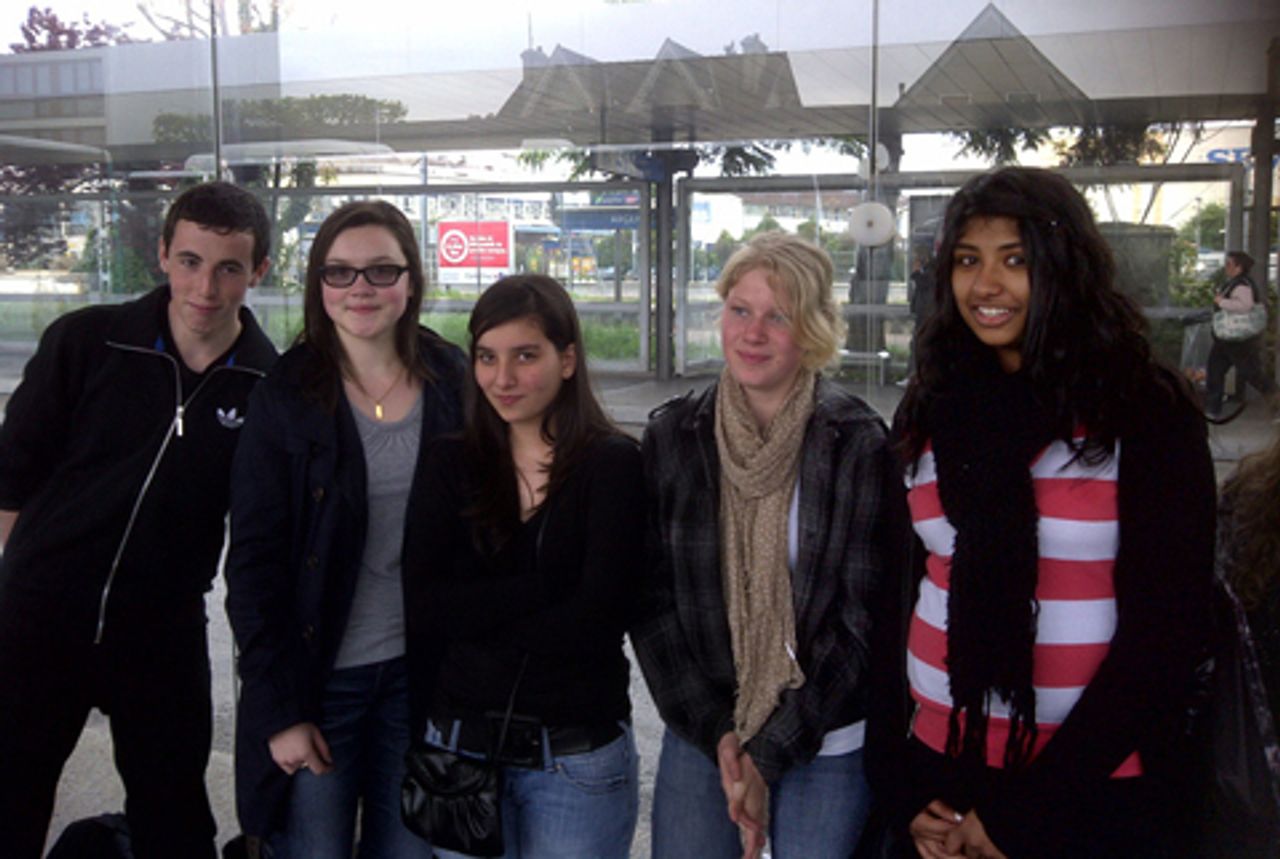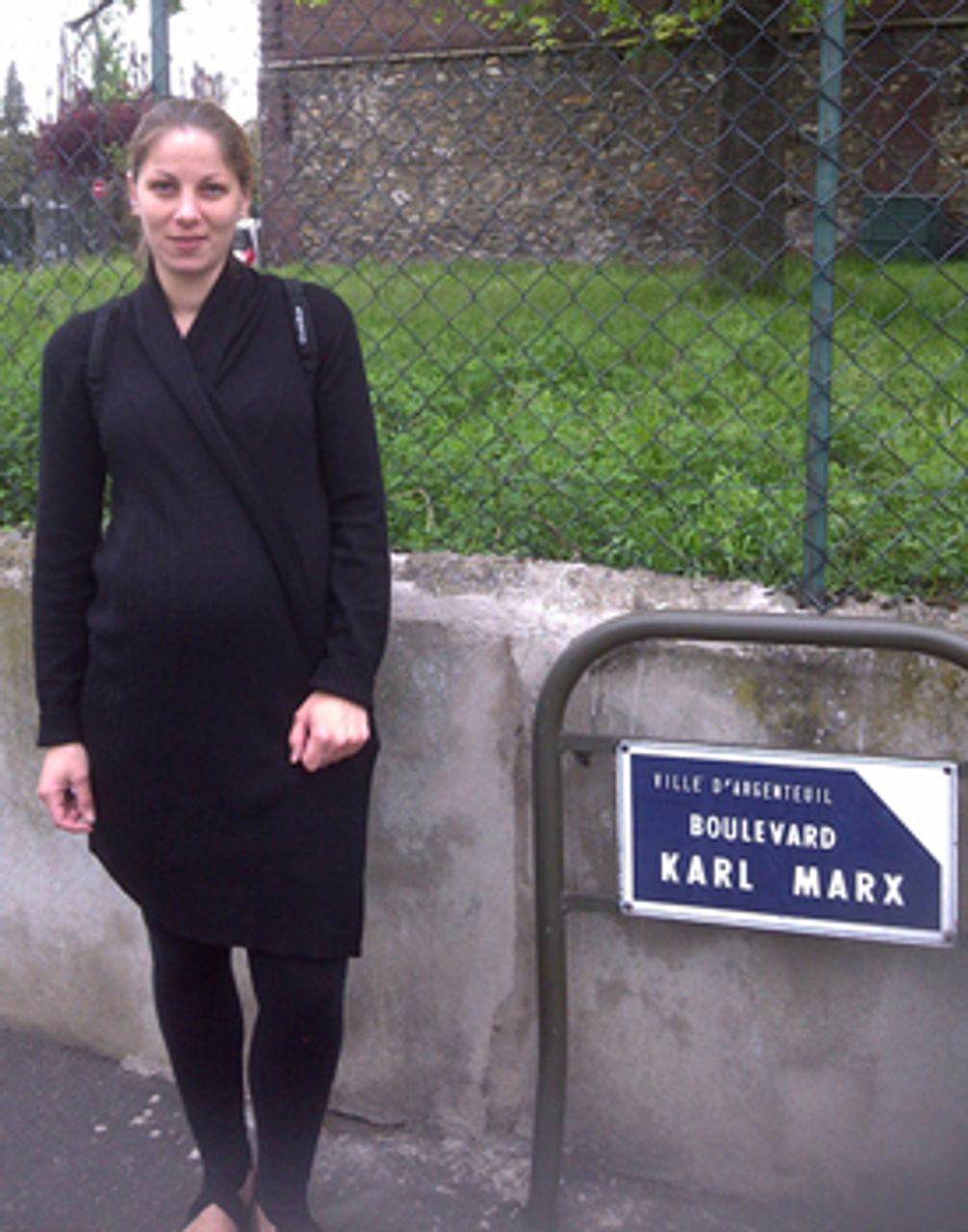Yesterday WSWS reporters visited Argenteuil, in the northwest Paris suburbs, to interview residents on the presidential elections and social conditions in France. Residents expressed their lack of interest in the presidential elections, noting that both Socialist Party (PS) candidate François Hollande and incumbent President Nicolas Sarkozy are indifferent to their social needs.
Argenteuil, the second most populous town in the Paris suburbs, became a major industrial center at the end of the 19th century. Famous impressionist painters—including Claude Monet, Alfred Sisley, Camille Pissarro and Vincent Van Gogh—painted there. Parts of it are now being gentrified as middle classes flee rising housing prices in downtown Paris, though there are also still substantial tracts of public housing in the city. It saw clashes between police and student protesters during the 2010 strike against Sarkozy’s pension cuts.
WSWS reporters spoke to Ali, who retired after working for 40 years at the Peugeot car plant in Poissy, at a bus stop. He complained about falling living standards for workers: “Things have to change. There have to be more jobs, life is expensive. Rents are 500 to 700 euros [US$657 to 920], but workers earn very little.”
Ali said he was laid off in 2007 and then took his retirement, noting: “The trade unions were OK with it, they want to get older workers to leave.”
He recalled struggles at the Poissy plant in 1980, saying: “There were big strikes—two months of strikes in 1980. At Poissy they fired 3,000 workers, they raised wages but they threw all the strikers out. The CGT did nothing.”
Amandine, a day care worker, said: “I don’t know what will happen with the elections, I have no opinion on the candidates.” She said she thought there would be no change after the election. She pointed out that workers’ wages are not sufficient to pay rent and raise a family. She said, “We need more work and more money for people with children. We also need more housing. Rents are 500 euros for public housing, private housing is 700 to 900 euros.”
 Antoine, Lauren, Melissa, Coline, Mireille, Sumitha
Antoine, Lauren, Melissa, Coline, Mireille, SumithaWSWS reporters also spoke to a group of high school students. Asked about the May 6 presidential run-off between Socialist Party (PS) presidential candidate François Hollande and Nicolas Sarkozy, they said that the ultimate goal of both candidate is the same. They were not quite sure what it was. Lauren, however, has family in Portugal and feared that the debt crisis and attacks on the population’s social rights could spread to France.
She said, “In Portugal people no longer have anything to eat, there are no more jobs, big companies are firing people. There are big chances that it could be like that here.” She added, “My cousin in Portugal has problems paying the rent.”
WSWS reporters also spoke briefly to Anne, a right-wing voter. She said that the elections are “a catastrophe, and Sarkozy…” She shrugged, adding: “I voted Sarkozy out of anger with the PS.” She explained, “I come from a privileged social background, so my parents gave me right-wing ideas.”
Asked what issues had made her vote for the right wing parties, she said: “There are too many immigrants, before caring for all the people who have problems, we must care for people in France. One cannot allow in the entire world’s misery.”
The WSWS also spoke to a group of youth (Amine, Fares and Rayan) at a public apartment complex. Amine and Fares are unemployed, and Rayan is a student. They said, “We all voted Hollande, but Hollande and Sarkozy are the same. They have the same goal. But everyone here voted the same way … Sarkozy or Hollande, nothing will change anyway, they are all the same.”
Asked about working class uprisings in Tunisia and Egypt against Western-backed dictatorships last year, they said: “It’s good they did it. If they need help, we’ll go.” They agreed when WSWS reporter noted that the real political change would require a revolution in France as that began in Egypt, with a massive intervention of the working class.
They angrily complained about police harassment. Pointing to a street corner, they said: “The policemen stop over there, and they provoke us.”
Obtaining a driver’s license is difficult and expensive, they said: “Driving without a license, a lot of people do it because getting a license costs a lot. It’s a problem.” They hoped that Hollande might cut the costs of obtaining a driver’s license. Driving without one is punishable with 2 hours’ detention at a police station and a 350 euro fine.
 Cécile
CécileOn Karl Marx Boulevard, WSWS reporters met Cécile, a cleaning woman and the mother of four children. Speaking of the candidates, she said: “I don’t like any of them, it doesn’t matter what they say, they won’t do it. Each time a candidate runs, he doesn’t keep his promises. … I am fed up with it; things are not going to change. In fact, everyone needs help.”
When asked about the high vote total of the neo-fascist Front National in the first round, she noted: “One day the FN will win, people are sick of everything.”
Asked why the FN has benefited from the crisis, she said: “I don’t know why, but the left is the same as the right. The far left, it does not really move, whatever they say. There are those with radical speeches, but even if they were elected they would not do anything.” She briefly dismissed New Anti-capitalist Party (NPA) spokesman Olivier Besancenot, noting: “Those are nice-sounding speeches that are pleasant to listen to.”
She opposed plans to force France and other European countries to fund more bank bailouts for Greek debt in exchange for imposing social cuts on Greece: “They will never be able to catch up with the debt. Spending money on other countries, what does it do, our country is already indebted. Moreover, it doesn’t help the Greeks.”
She said that workers struggle to make ends meet: “I live in Argenteuil, life is hard. Here is a simple, stupid case: I was on welfare, I did everything to look for work, I found a job as a cleaning woman. I’m paid 500 euros [per month], but then they took away my free public transport card and health insurance. We’re told to work, that’s very nice, but …”
With her salary and 250 euros in monthly state aid, she noted, “At 750 euros monthly one does not live, one survives. I live with my mother.”
She denounced the official parties’ anti-immigrant campaigns: “We must accept foreigners, we need them. Besides, why should we deport them, it does not help them either. If one accepts them, we should accept everyone. Without foreigners, many things would not have been possible.”
Cécile also spoke out against job cuts in education. Speaking about her children’s school, she said: “The schools are good, it depends on the neighborhood. Now they are short on teachers. … They are really short on teachers, class sizes are too big, 30-35 students per class, and they put together students of different ages.”
